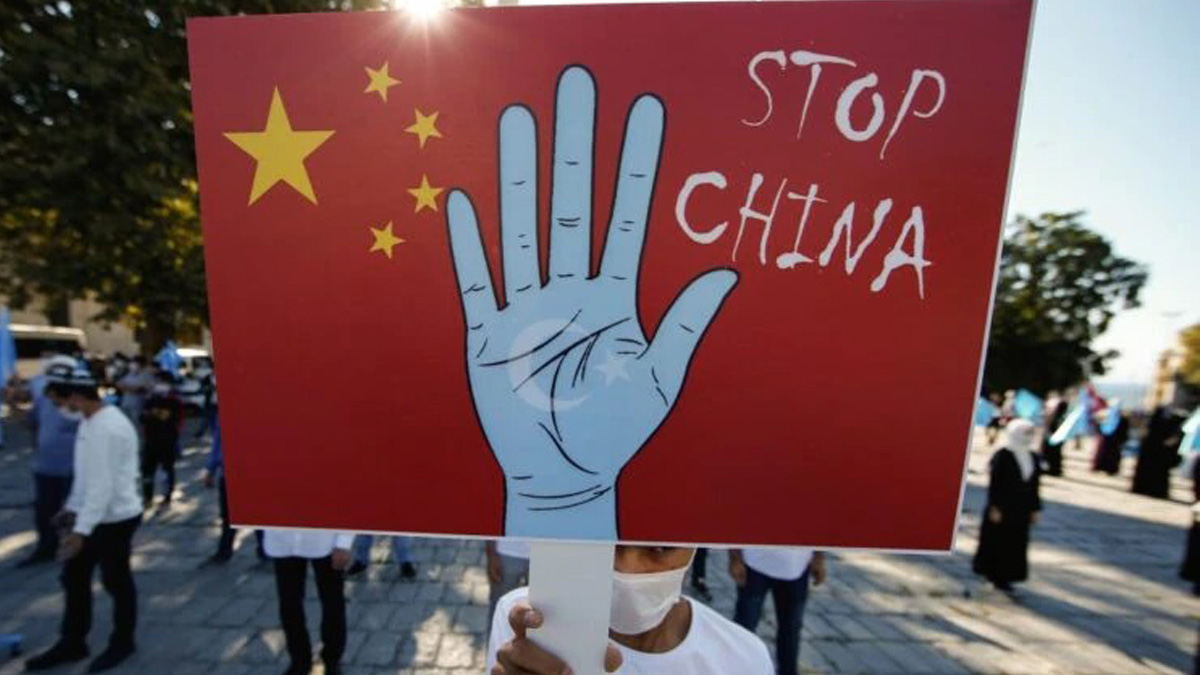
From blasphemy to monkeys for loan repayment, BRI debt defaulters have a taste of Chinese medicines
South Asian countries which have got associated with China through the latter’s Belt and Road Initiative are meeting with the most unlikely and weird of experiences.
In some places, Chinese managers with their colonial mentality are denigrating the religious beliefs of the people of the recipient countries of BRI loans; at others, recipient countries are obliged to send to Beijing their wealth of endangered wildlife to meet the repayment burden of Chinese loans.
In Pakistan, the all-weather friend of China, a Chinese manager has worked himself into a tight corner; spending time in a Pakistani prison on charges of blasphemy for having hurt the religious feelings of the local labourers in a hydro-electric project in Pakistan. People in Pakistan now demand the death penalty for him.
Colombo, on the other hand, is now obliged to send to Beijing 100,000 endangered monkeys as part of debt repayment for Chinese loans. The poor animals are now destined to end up in Chinese laboratories for so-called scientific experiments.

The Chinese citizen, identified as Tian, was working as a manager in the biggest hydro power project in Pakistan; being set up with Chinese assistance under BRI. He had allegedly made blasphemous remarks the previous Friday when workers were going to perform their weekly prayer.
The accused had complained of slow pace of work during the holy month of Ramadan when Muslims fast from dawn to sunset, and had also made other derogatory remarks.
The Pakistani labourers said they were fasting but denied that the pace of work had slowed down. This had led to an exchange of heated words. Workers claimed that Tian had made blasphemous remarks and insulted the Prophet.
On Sunday, an angry mob tried to break into a Chinese camp near the project site. The mob was controlled, but on Monday they assembled again and blocked the Karakoram Highway that linked Pakistan with China; demanding the arrest of the Chinese national.
The protest lasted for six to seven hours. The blocked highway could be reopened for traffic only after Tian was arrested. Under Pakistan laws, blasphemy attracts the death penalty.
An army helicopter took the Chinese national to a safer location as the authorities feared he could be attacked by angry Pakistani workers. Social media videos showed the mob chanting “God is great,” as the police fired shots in the air to disperse the crowd.
Army and paramilitary force personnel had to be deployed at the Chinese camp to ensure the safety of other Chinese engineers working in the project.
The Chinese engineer is reported to be in solitary confinement in a top security prison 200 km away from Dasu. According to reports, several charges related to terrorism have been added to the charge of blasphemy against him. This has been done to remove him away from the Kohistan region, where Dasu is located, as the Chinese engineer could be vulnerable to mob attacks either in the local police station or on the way to the local court.
Predictably, Beijing is not vocal against the arrest of the Chinese citizen as it does not want to upset its applecart in Pakistan. Foreign Ministry spokesman of China Wang Wenbin has been quoted as saying that the Chinese Embassy in Pakistan is still trying to verify the information. “The Chinese government always asks Chinese nationals overseas to abide by the laws and regulations of the host countries, and respect local customs and traditions,” he has said.
The same hydro power project was the site of a suicide blast in July 2021 in which 13 people, including nine Chinese engineers, were killed. According to reports, people in Pakistan are unhappy with the BRI projects under which their lands have been acquired by Chinese companies without adequate compensation, highly polluting projects like thermal power plants are being built under the BRI and common Pakistani people are not getting any benefit from these projects which employ only Chinese nationals in the jobs with high pay packets.
Environmental groups in Sri Lanka are alarmed that the first batch of 100,000 monkeys from the cash-strapped island nation could be heading to test labs in China. Earlier, Agriculture Minister of Sri Lanka Mahindra Amaraweera had announced that Colombo was planning to export 100,000 toque macaques to China, one of the largest bilateral lenders of Sri Lanka. The toque macaque is classified as endangered on the International Union for Conservation of Nature red list. The request for monkey export has come from a privately owned Chinese company. Interestingly, the Chinese embassy in Colombo has pleaded ignorance of a Chinese company requesting for 100,000 toque macaques from Sri Lanka for “experimental purposes.”
Significantly, in the first week of April 2023 Beijing said it was willing to negotiate a medium and long-term debt disposal plan with Colombo in a “friendly manner” to enable the island nation, in the midst of a deep crisis with its external debt, to sustain its debt. Environmentalists in Sri Lanka are understandably alarmed with this Chinese demand as a mode of debt repayment. Executive Director of the Centre for Environmental Justice Hemantha Withanage has warned that the first batch of 100,000 endangered monkeys could be heading for test labs in China. The monkeys could be used for testing cosmetic products and for medical experiments.
Environmentalists in Sri Lanka have rejected the claim of the Agriculture Minister of the country that the 100,000 toque macaques would be exhibited at over 1,000 Chinese zoos. Ange has pointed out that, as per globally accepted definition of a zoo, there are only 18 zoos in China that fit the bill. Under this criterion, over 5,000 toque macaques would have to be kept in each zoo.
Obviously the claim is not credible, they have pointed out. Having already lost the Hambantota Port to China, people in Sri Lanka are now worried that they will now have to lose the wildlife wealth of the island nation too in order to meet the rapacious greed of Chinese creditors.
There is one thing common between Pakistan and Sri Lanka. Both the countries are neck-deep in external debt after having invited to their countries Chinese projects under BRI agreements. Both Islamabad and Colombo have finally been constrained to approach the International Monetary Fund for bailout packages. Both the countries are finding it difficult to obtain the assistance from the IMF as China, being their largest creditor, is dragging its feet on their requests for restructuring their debts; which is a part of the condition of the IMF for extending bailout packages.
According to IMF data released in September 2022 and quoted in a Reuters report, China holds roughly $30 billion or 30 percent of the total external debt of $ 100 billion of Pakistan. On February 16, 2023, U.S. State Department Counsellor Derek Chollet expressed in Islamabad concern about debt owed to China by Pakistan and other countries.
According to reports, instead of agreeing to restructure the debt of Pakistan to enable its all weather friend to secure a bailout package from IMF, all that Beijing has agreed to offer is a fresh loan of $700 million, which will only increase the future debt burden of Pakistan to China. Islamabad is now dependent on the release of a $1.1 billion bailout fund from the IMF. This is part of a $6 billion package agreed upon in 2019.
















Comments